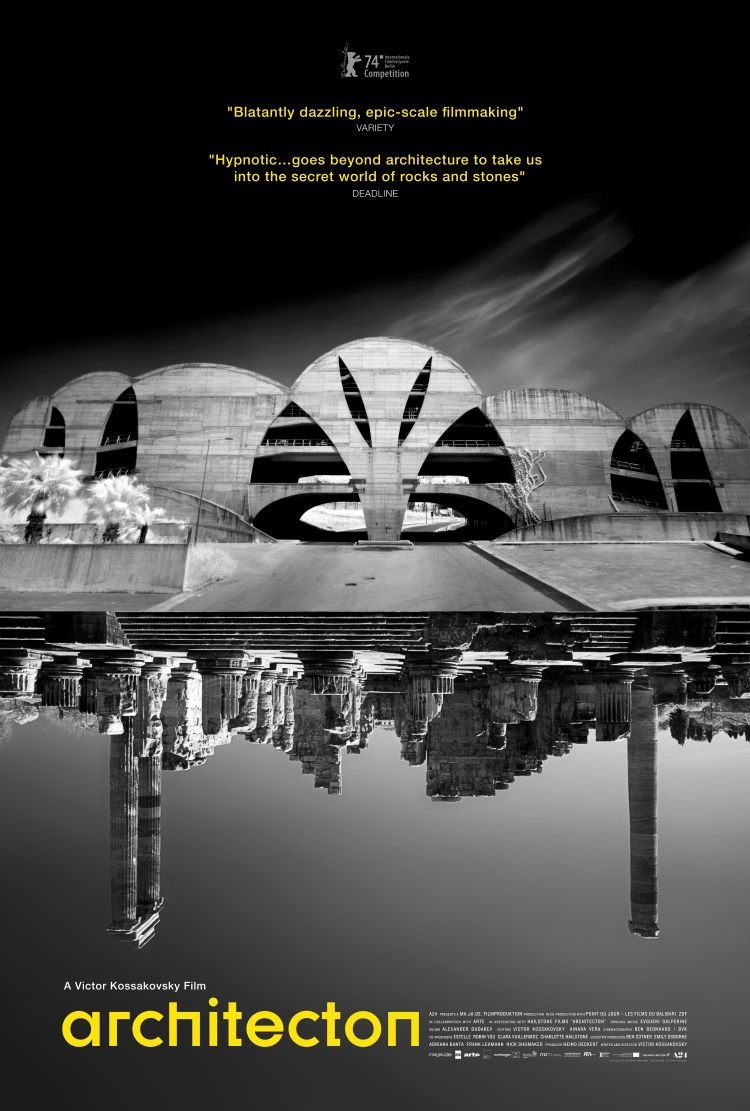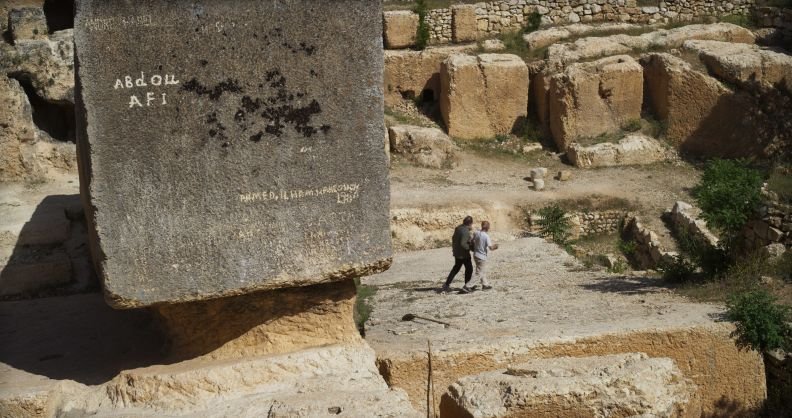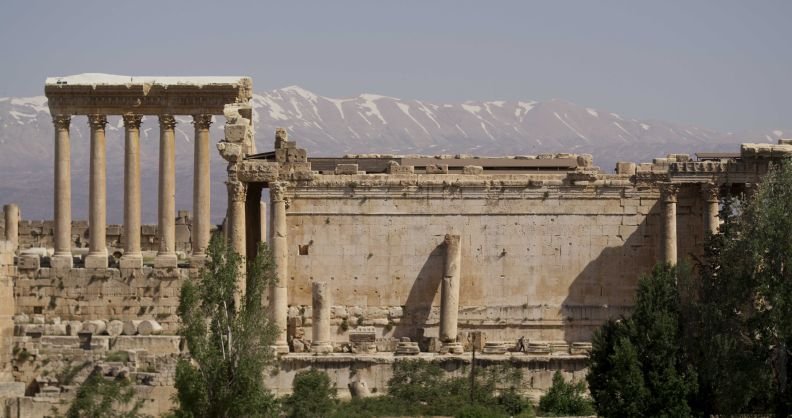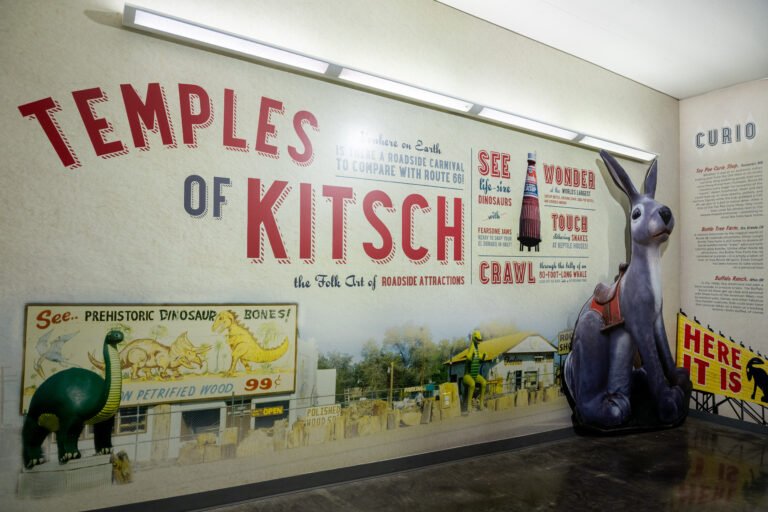
In “Architecton,” filmmaker Victor Kossakovsky takes us on a worldwide exploration of ruins and debris to address one of the most pressing questions of our era: How can we create a world that is deserving of the future?

What insights can a perfect circle of stones in an Italian garden provide about the rise and fall of empires, the devastation of contemporary cities, and the endurance of our planet? For the visionary filmmaker Victor Kossakovsky, it serves as the ideal starting point.
His breathtaking new documentary, “Architecton,” produced by indie studio A24, is an epic, personal, and poetic reflection on the very materials that surround us: the concrete and stone that constitute our environment. The film, which debuted to rave reviews at the Berlin International Film Festival, serves as a silent outcry against the negligence of modern construction and a deep quest for a more harmonious way of living.
The film begins with the tranquil, symbolic stone circle designed by Italian architect Michele De Lucchi. This simple, ancient structure becomes the philosophical foundation of a journey that traverses thousands of years and various continents. From the magnificent, 2,000-year-old temple ruins of Baalbek in Lebanon to the eerie, freshly crushed concrete of cities in Turkey, devastated by a 2023 earthquake, Kossakovsky’s lens draws a direct and damning connection.
“Architecture is a way of seeing things we don’t want to see—it’s like a record of what’s happened in the past, but also what’s happening right now,” Kossakovsky explains in the film’s press notes.
The contrast he portrays is astonishing. In Turkey, ancient stone structures that are 4,000 years old remain steadfast while contemporary concrete skyscrapers disintegrate into dust. In Lebanon, we observe megaliths that weigh more than 1,600 tons—rocks so enormous that our current cranes are unable to lift them—serving as a tribute to the brilliance and reverence for durability of a bygone civilization.
“We are not the first civilization,” Kossakovsky reflects. “The previous people probably thought that they would be here forever, just like we think and behave now. But they disappeared.”
A Trilogy of Humility

“Architecton” completes what Kossakovsky calls his “‘A’ trilogy,” a series of films that began with “¡Vivan las Antipodas!” and continued with the water-focused “Aquarela.” These projects, he says, have fundamentally changed his view of humanity’s place on Earth.
He even takes issue with the opening page of the Bible. “In six days God made darkness and light, then earth, water, plants and animals, and then he made man to rule them all. I found this absurd!” he says. “Why is my life more important than any other life on the planet?”
This theme of human insignificance—and hubris—permeates the film. It’s a perspective sharpened by personal tragedy; the Russian invasion of Ukraine forced Kossakovsky to radically rethink his project. Footage of Ukrainian cities destroyed by Russian missiles serves as a stark reminder that humanity’s war on itself is matched only by its war on nature.
The film sounds a loud alarm about our addiction to concrete, which Kossakovsky likens to sugar in our bodies: “fast and cheap, but we don’t see the big picture.”
- The statistics he cites are staggering:
- We destroy 700 mountains a year in one region alone to make cement.
- In the UK, 50,000 buildings are demolished annually.
- Last year, we produced enough cement to build a wall one meter thick and one kilometer high around the entire equator.
“We turn mountains into cement and we build buildings that last 40 years, on average… and then we make mountains of garbage from the remains,” he says. This catastrophic cycle, he argues, is unsustainable, especially with a global population headed toward 10 billion.
A Circle of Hope
Amidst the debris, there exists a glimmer of hope. After speaking with 20 renowned architects from around the globe, Kossakovsky discovered that most were unable to respond to his straightforward question: what should occupy the center of a modern city? They suggested schools, libraries, or shopping centers. Only Michele De Lucchi presented a “clearcut and universal ideal”.
What was his suggestion? An empty circle. A sacred, unspoiled area at the core of our cities where nature can simply exist, constantly reminding us that it, rather than us, is the genuine focal point of existence.
It is this humility—this respect for the “Great Architecton of the Universe,” a term Kossakovsky rediscovered in Tolstoy’s “War and Peace”—that the film posits as our only way forward.
“Architecton” is not just a film about buildings. It is a profound inquiry into the legacy we are building for tomorrow. It challenges us to look at the world we’ve made, from the ghostly monoliths of the past to the tragic heaps of our present, and ask ourselves: before it’s too late, how can we build better?
“Architecton,” crafted by Victor Kossakovsky and produced by Heino Deckert, unites a talented team that includes Michele De Lucchi, Mauro Mella, Davide Alioli, Nick Steur, Abdul Nabi al-Afi, and Maksim Gaubetc. The editorial contributions come from Victor Kossakovsky and Ainara Vera, while the cinematography is handled by Ben Bernard / BVK. This film premiered on August 1, 2025. “Architecton” is now playing in select theaters.



